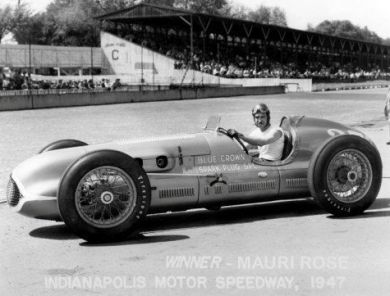The tiny country of Liechtenstein — located in the Alps, between Austria and Switzerland — welcomed 188 baby girls and 165 baby boys in 2020. According to Liechtenstein’s Office for Statistics (Amt für Statistik), the most popular baby names in the German-speaking microstate were Sofia and Maximilian/Oscar (tie).
Here are Liechtenstein’s top girl names and top boy names of 2020:
Girl Names
- Sofia/Sophia, 7 baby girls
- Laura, 5
- Hanna/Hannah, 4
- Amélie/Amelie, Anna, Annika, Emma, Julia, Lina, Mia, Nina, Noemi, Nora, Sophie, and Valentina, 3 each [12-way tie]
- Alya, Amelia, Elena, Elisa/Eliza, Ella, Emilia, Estelle, Klara, Lara, Leonie, Letizia, Luisa, Malia/Maliyah, Mara, Melissa, Mina, Naomi, Noelia, and Paula, 2 each [19-way tie]
Boy Names
- Maximilian and Oscar/Oskar, 4 baby boys each [tie]
- Laurin, Leo, Lian/Lyan, Luis/Louis, Noah/Noa, and Theo, 3 each [6-way tie]
- Gustav, Henri, Ivan/Iwan, Lenny, Leon, Leopold, Matteo, Max, Muhamed/Muhammed, Nico, Nino, Noel, and Thiago/Tiago, 2 each [13-way tie]
(Lian, one of the 2nd-place boy names, is a German short form of Julian or Kilian.)
Liechtenstein also released the single-use baby names of 2020, which is very cool. All the names not accounted for above are in the table below:
| Unique girl names (98) | Unique boy names (113) |
| Adea, Adriana, Ahlam, Aitana, Alejna, Alenia, Alina, Ally, Alya-Su, Amina, Amy, Anastasia, Anely, Annalena, Anna-Rosa, Anouk, Aria, Ariana, Aslihan, Aurora, Bissan, Carolina, Cecilia, Chiara, Clea, Cora, Darija, Elenia, Elina, Elizabeta, Elizan, Elna, Eltea, Emanuela, Esîlya, Fabia, Farah, Fatima, Fjella, Georgie-Gisele, Gioia, Giulia, Helena, Ida, Ilenia, Iris, Irma, Ivy, Jamie, Joleen, Joya, Juna, Kaia, Katharina, Keysi, Ksenija, Lena, Leonor, Lilian, Liyana, Loredana, Lorena, Luana, Luena, Maeva, Malak, Maria, Maria-Luisa, Marie, Melina, Merle, Mia-Sophie, Miira, Mila, Mira, Naila, Natalia, Nayeli, Nelia, Nika, Riva, Rivanna, Romy, Ronja, Salima, Samira, Sandrina, Senada, Soley, Tajra, Teresa, Tina, Valérie, Viviana, Xoawa, Yara, Yesim, Zeynep | Aaron, Adrián, Aidan, Ajan, Alessandro, Alonso, Alp, Anas, Aril, Armon, Arthur, Aurel, Aurelio, Benedikt, Benjamin, Benno, Bruno, Christian, Christoph, Clark, Curdin, Cyano, Damiano, Danilo, Dante, Davide, Dominik, Eduardo, Elija, Elvis, Emanuel, Emil, Emilian, Emilio, Enes, Erian, Erion, Fabian, Federico, Finn, Gabriele, Giuliano, Hamza, Hazar, Hendrick, Jamie, Jan, Jari, Jeremias, Jérôme, Johannes, Jonah, Jonas, Jorel, Julian, Kentse, Kiano, Konstantin, Lauri, Leart, Levin, Liam, Liandro, Linus, Lio, Lionel, Lorent, Luan, Macgyver, Mahir, Majiid, Marco, Marius, Martim, Massimo, Mats, Maurice, Michael, Michele, Mike, Mikyas, Milan, Nael, Nando, Nawin, Neo, Nick, Nicolas, Niklas, Oliver, Omer, Paul, Philomeno, Pierangelo, Raffi, Ragnar, Redford, Rico, Ruben, Samuel, Sebastian, Tenzin, Tino, Tobias, Umut, Valentino, Valerio, Victor, Vito, Yakup, Yanis, Yuusuf, Zeno |
Finally, since this is the first time I’m posting rankings for Liechtenstein, let’s throw in the country’s top baby names for the two previous years:
- In 2019: Emma (9) and a four-way tie between Fabio, Leon, Matteo and Paul (4 each).
- In 2018: Valentina (7) and a three-way tie between Ben, Leon, and Samuel (4 each).
Sources: Vornamenstatistik – Amt für Statistik (AS), Liechtenstein – Wikipedia, Behind the Name
Image: Adapted from Flag of Liechtenstein (public domain)



